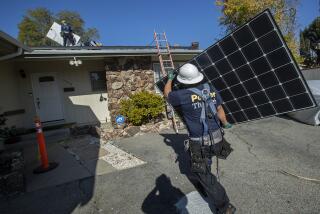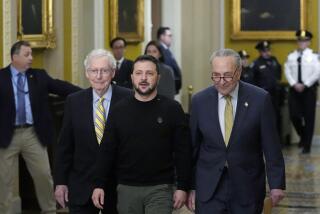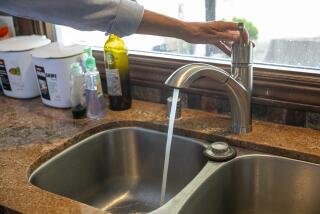Energy Aid Stays on Back Burner
- Share via
WASHINGTON — President Bush has not released an extra $300 million to help the poor pay heating bills because fuel supplies are high and a milder winter is expected, an administration official told Congress on Tuesday.
Lawmakers representing cold-weather states have encouraged Bush to release the money. They say it’s needed immediately to help people who still have bills from last winter or have had their heat turned off, and to provide relief for people affected by the economic downturn.
Even if the winter is mild, “the events of the past few weeks and the deteriorating economy make clear that this winter may well be one of the longest and hardest in many years for large numbers of people,” said Sen. Edward M. Kennedy (D-Mass.), chairman of the Health, Education, Labor and Pensions Committee.
Wade Horn, assistant secretary for children and families in the Department of Health and Human Services, told the panel that the administration will monitor the situation but sees no reason to release the money now.
“As circumstances warrant, we will expeditiously release those emergency funds,” he said.
The $300 million was approved by Congress in July for the Low Income Home Energy Assistance Program, which is expected to get another $1.7 billion once Congress finishes work on the 2002 budget.
Nationwide, the number of households receiving the grants last winter rose by about 30%, from 3.8 million to nearly 5 million. The number could rise to 6 million this year because of layoffs related to the Sept. 11 terrorist attacks, said Mark Wolfe, executive director of the National Energy Assistance Directors’ Assn.
Horn acknowledged that demand has risen but noted that this year’s residential heating bills are expected to be $170 to $320 lower than last year’s, on average, because of falling fuel prices and above-normal inventories.
The program’s budget last year was $1.4 billion. President Clinton approved $855 million more in emergency aid before leaving office.
More to Read
Get the L.A. Times Politics newsletter
Deeply reported insights into legislation, politics and policy from Sacramento, Washington and beyond. In your inbox three times per week.
You may occasionally receive promotional content from the Los Angeles Times.










